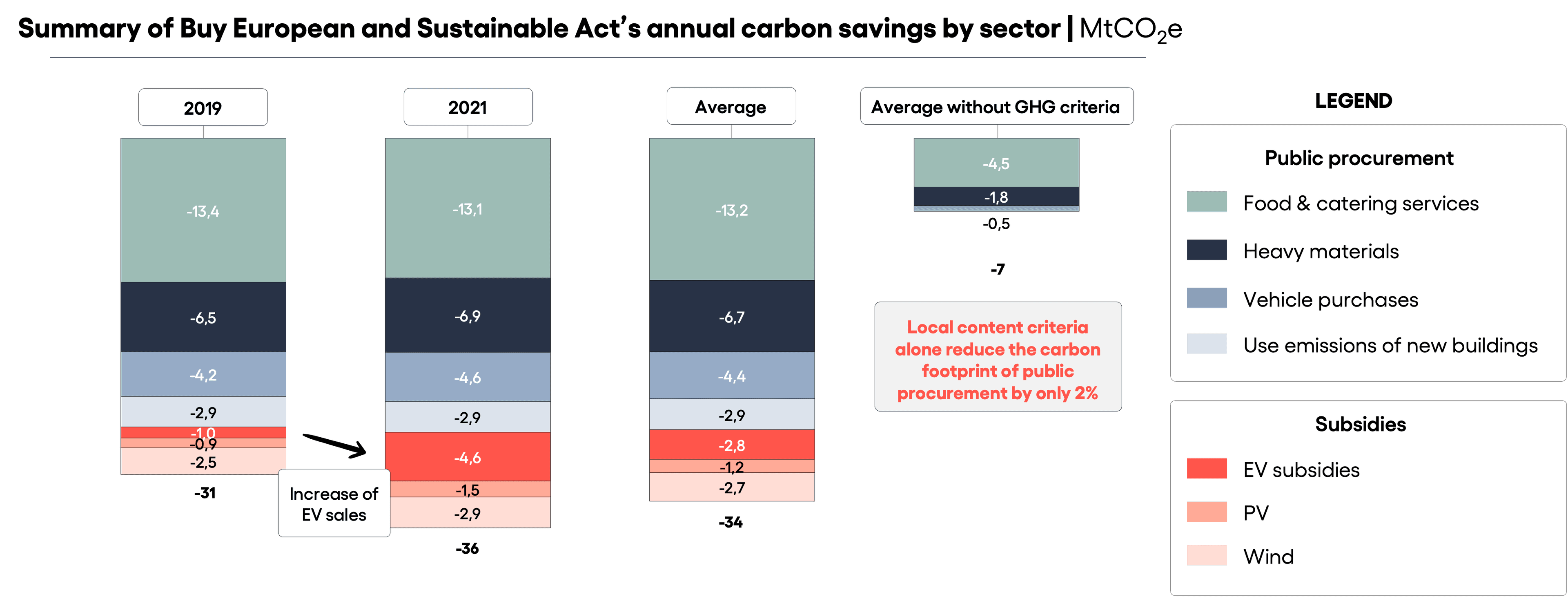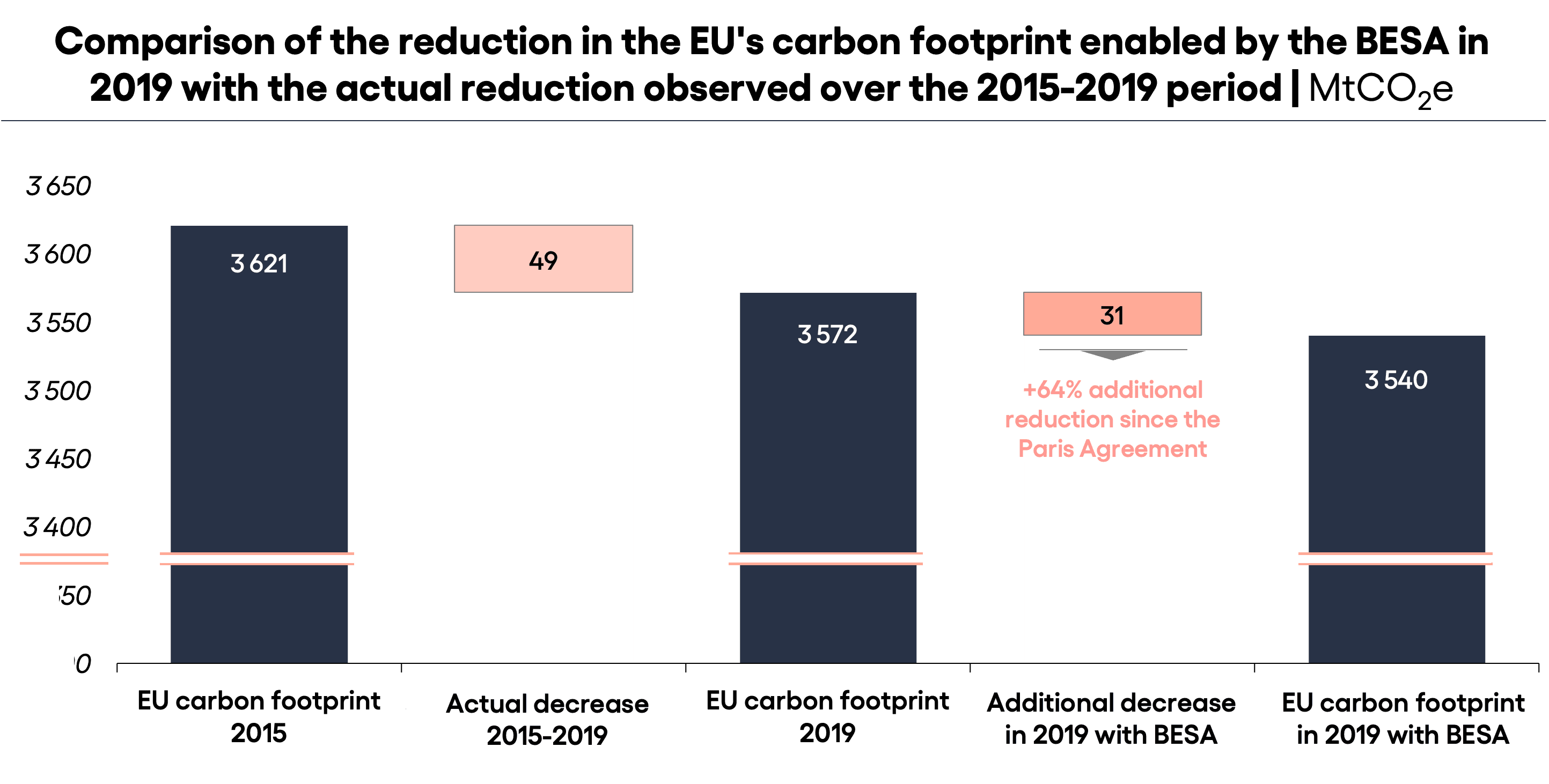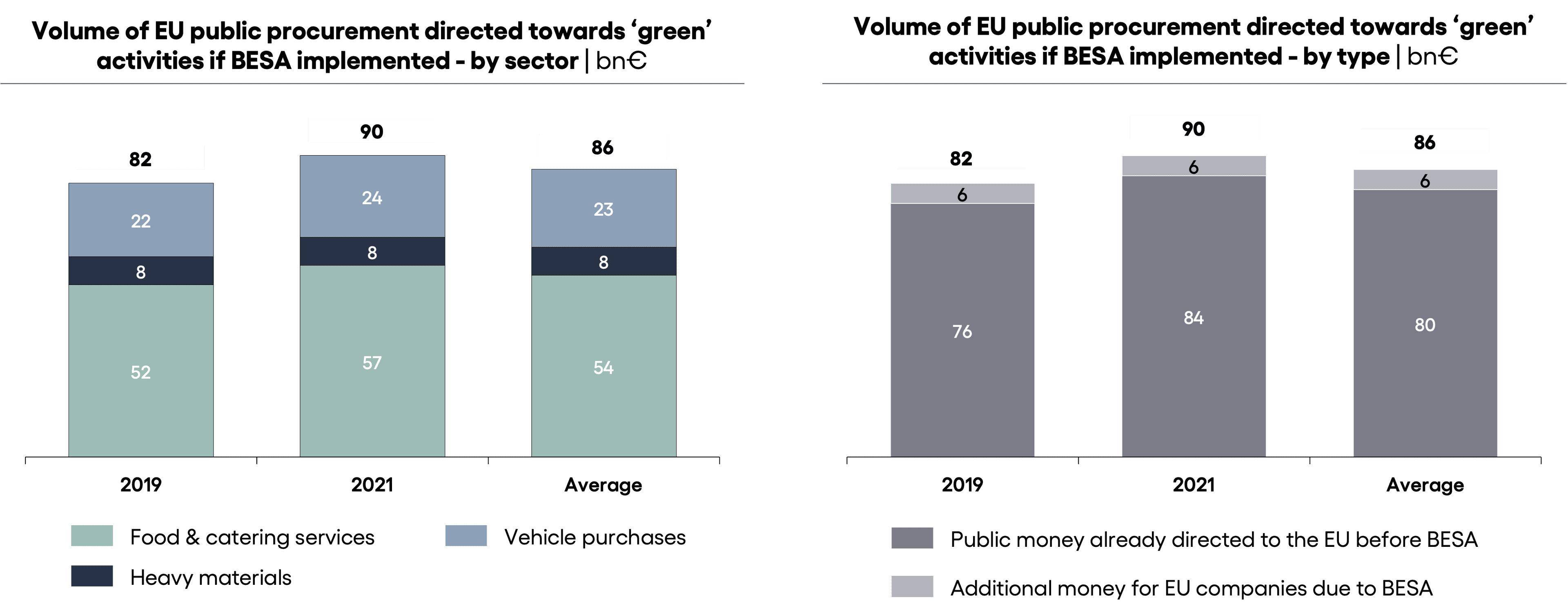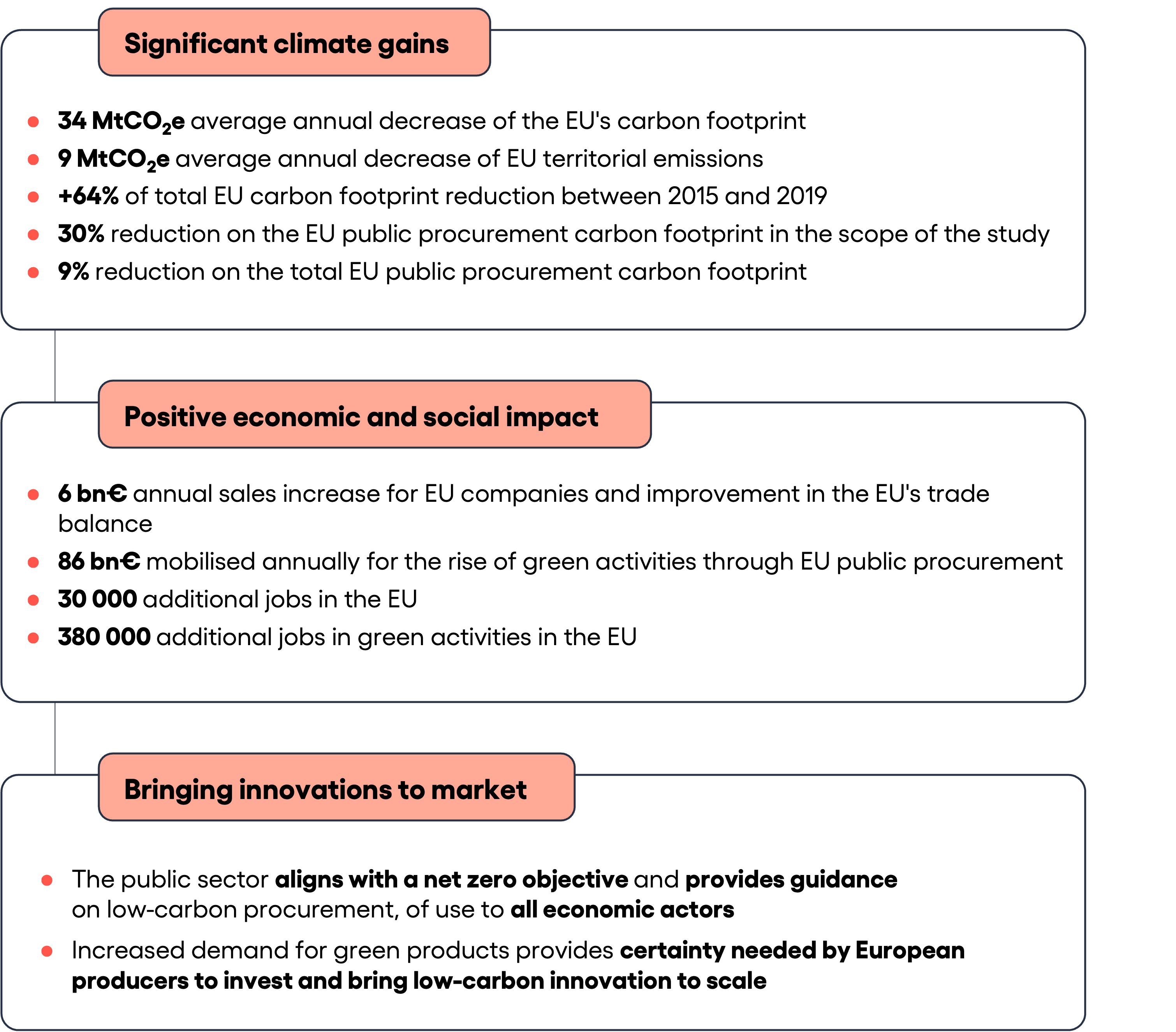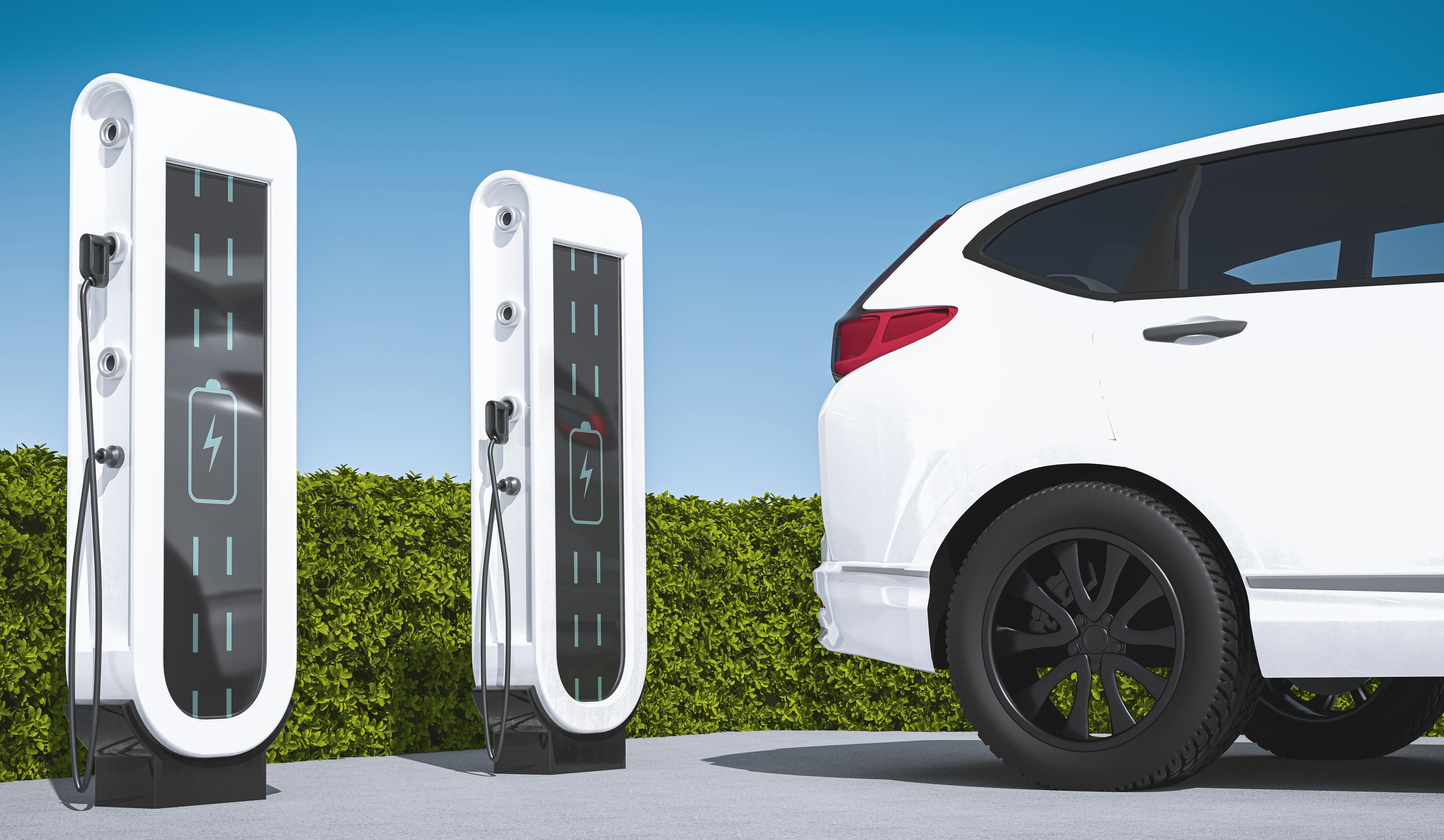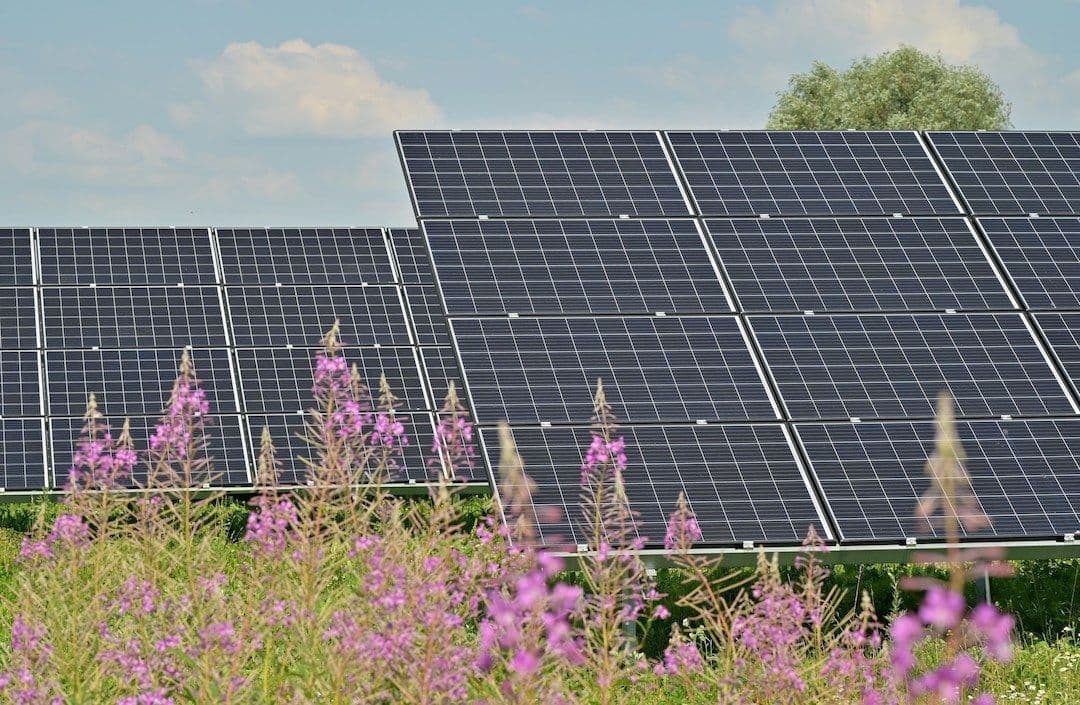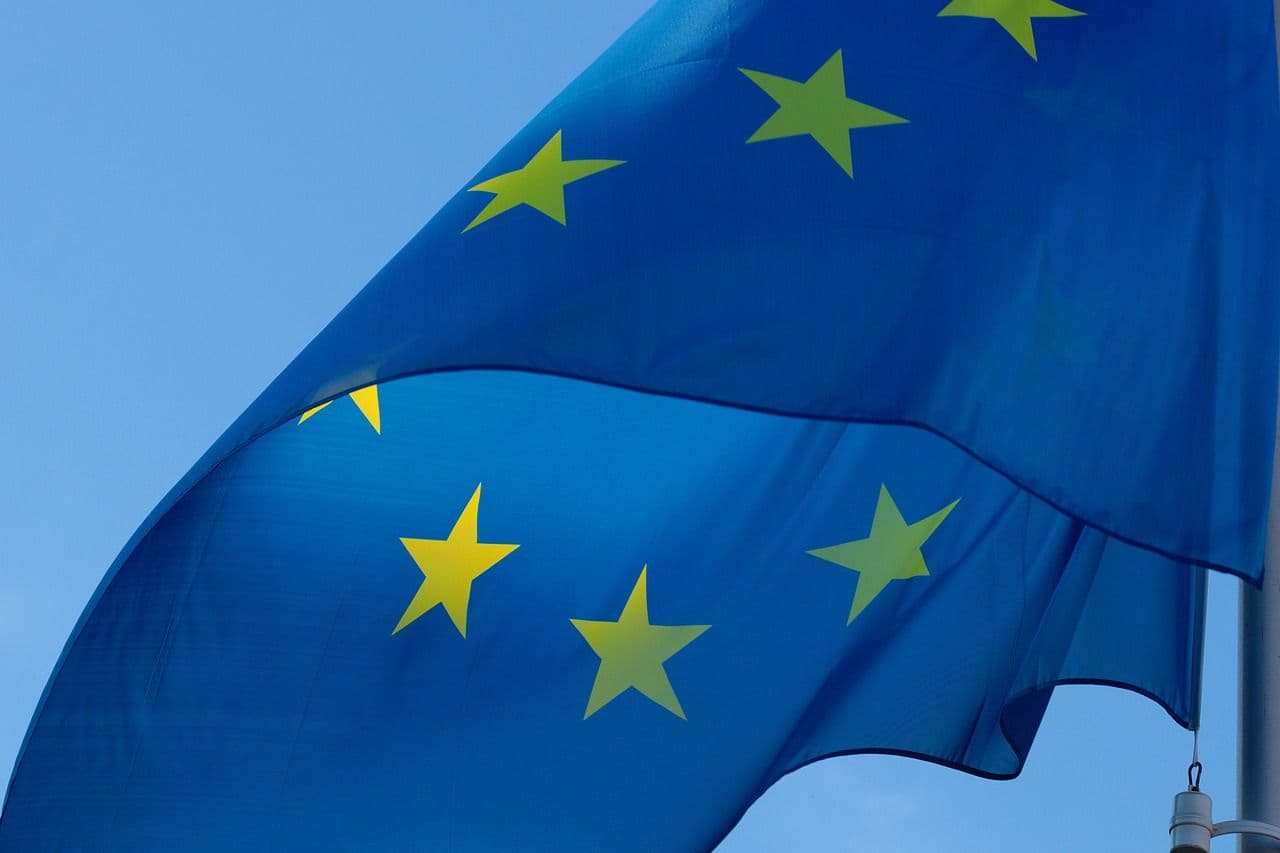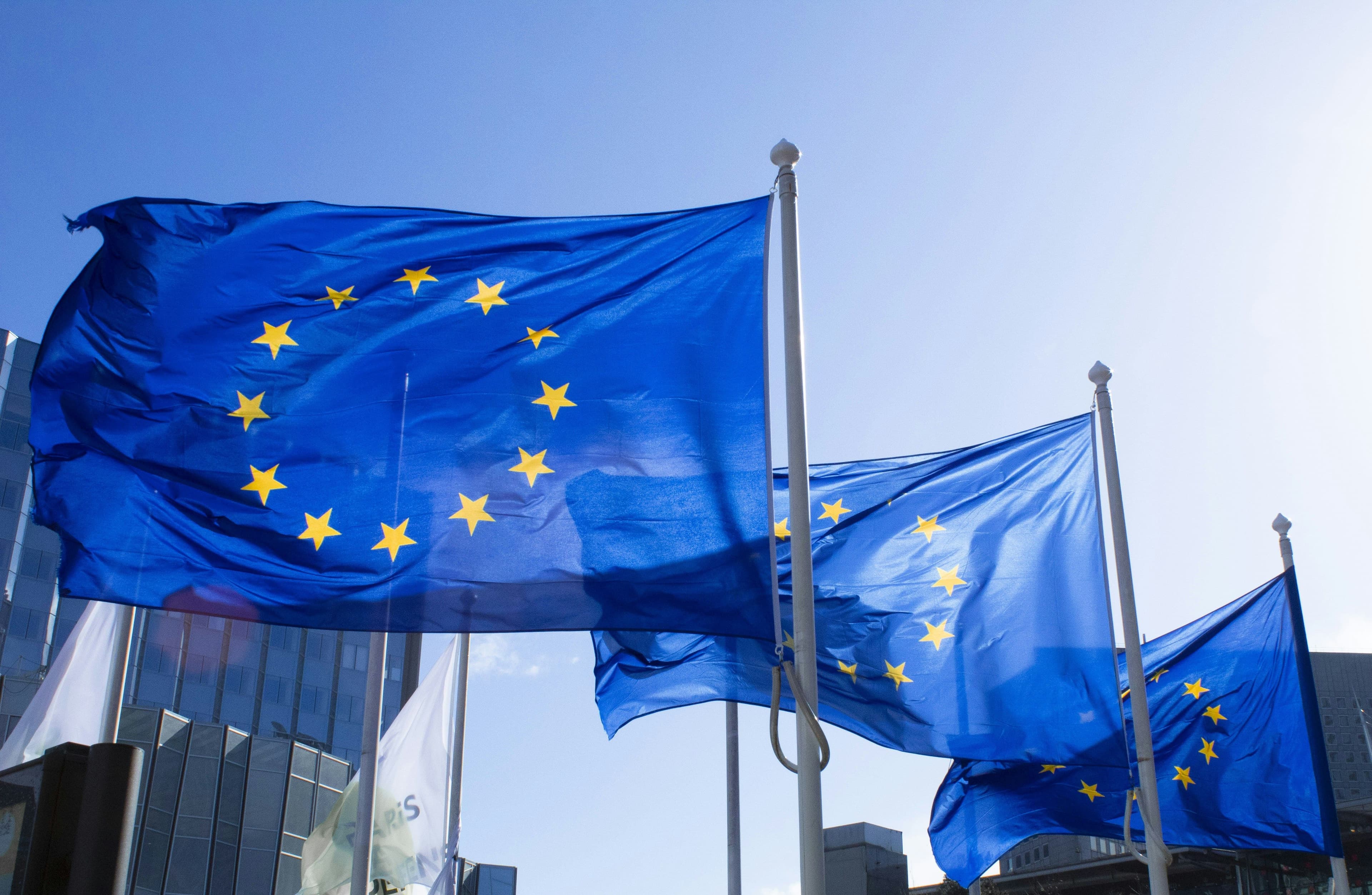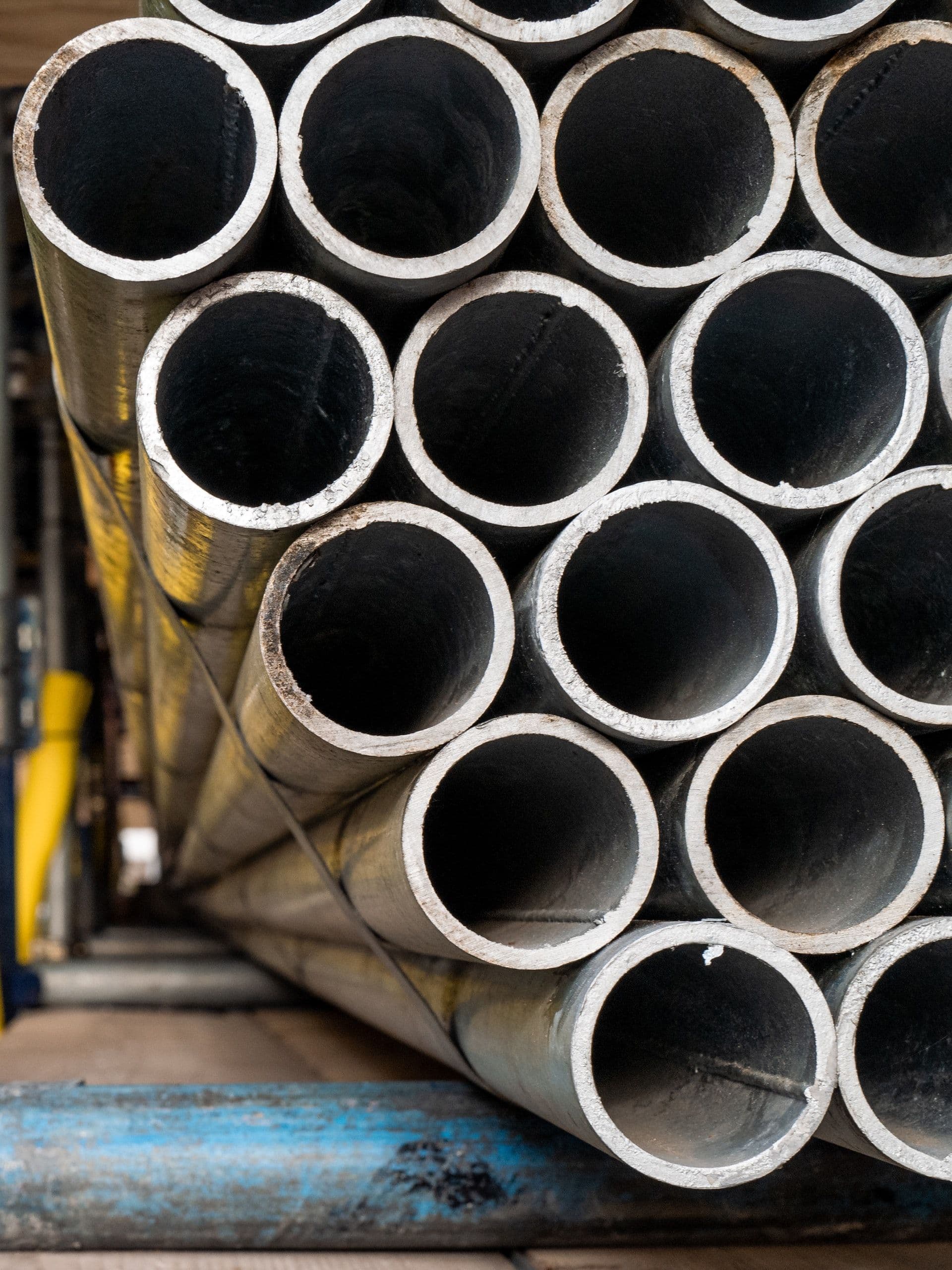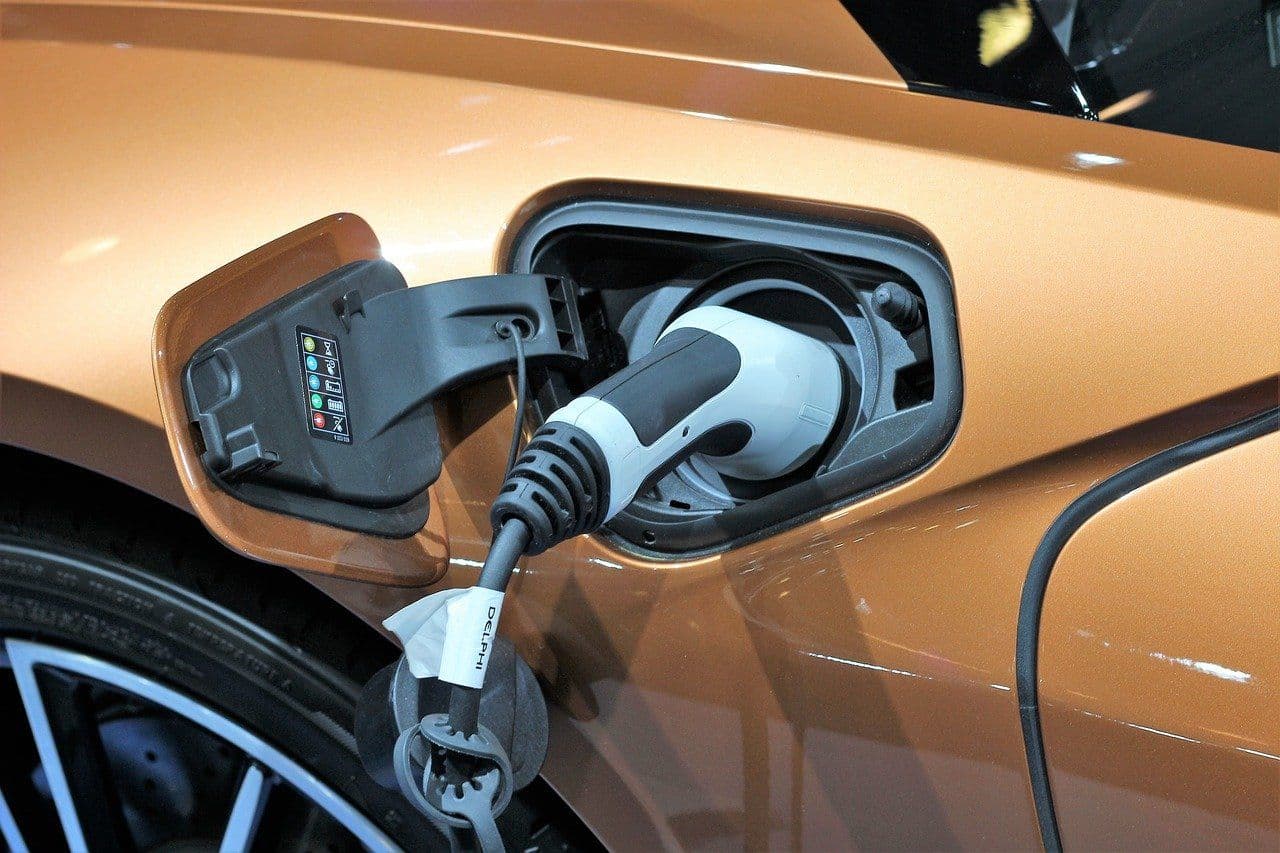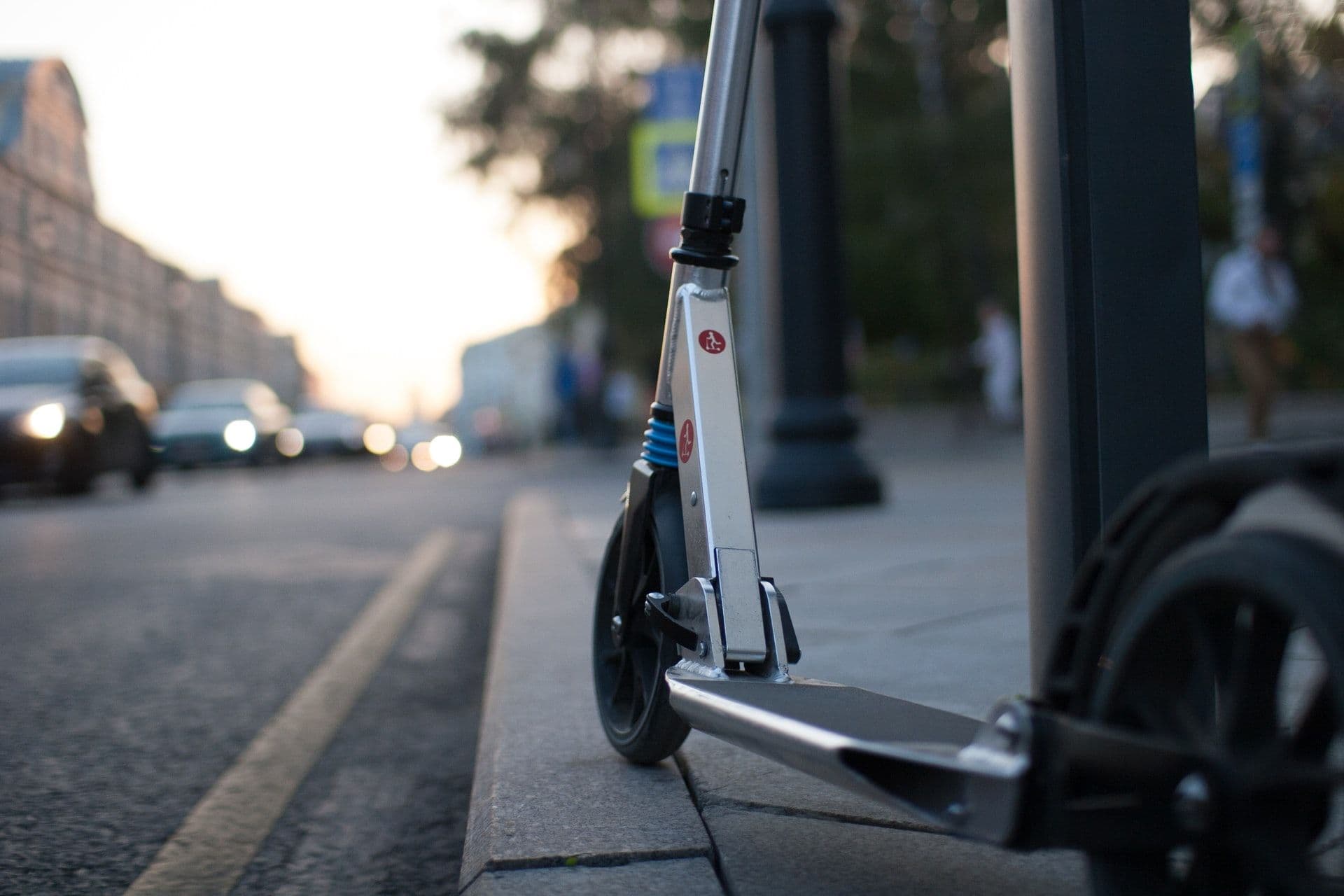Buy European and Sustainable Act : accelerating the low-carbon transition in the European Union
The objective of the study is to understand to what extent the introduction of a Buy European and Sustainable Act (BESA) on public procurement could accelerate the low carbon transition and resilience of some European economic sectors.
The Buy European and Sustainable Act (BESA) would be a European directive regulating how public authorities in EU member states award contracts for goods, services, and works by introducing additional environmental, carbon and local content criteria.
Public procurement is responsible for 10%[1] of the total carbon footprint of the European Union (EU) and its expenditures are equivalent to 15% of EU’s GDP[2]. If aligned with climate objectives, public procurement could play a significant role in creating markets for innovative low-carbon solutions and accelerating the shift of the European economy to climate neutrality. However, even though the Paris Agreement commits EU countries to sharp GHG emission reductions, 55% of public procurement expenditures are attributed to the lowest-price bidder[3]. Sustainable or green public procurement (GPP) can be used as a tool to mitigate the environmental impact of the public sector and to provide a strong market signal to accelerate the low carbon transition and resilience of economic sectors such as industry, construction, transport, energy, and agriculture. There is overall a very strong case for harnessing public procurement to help EU Member States meet their climate goals.
This study explores the value of GPP, and more precisely a hypothetical Buy European and Sustainable Act narrative: What if the EU countries had decided to align their public procurement with their climate mitigation ambition at the time of the Paris Agreement, with full effect from 2019?
The study covers all EU countries and relies on data from 2019 and 2021.
The analysis focuses on products with a high GHG content, for which public purchasing is a significant market and where quantified criteria can be applied: steel, aluminium, cement, construction, vehicles, and food and catering services. These represent about 30% of the carbon footprint of public procurement. Although the analysis provides insight into the direct impacts of public procurement, it does not quantify broader leverage effects, and results should be taken as conservative.
The study defines public procurement criteria based on best practices in the EU economy. They are meant to send a strong market signal, to create economic outlets for the most virtuous players in the EU, and to encourage others to follow.
Two types of criteria are simulated:
- Local content: a minimum threshold is set for the European content of products purchased by public authorities. This criterion influences the geographical origin of the products purchased, and therefore all the indicators monitored (revenues of EU companies, jobs, GHG emissions).
- Climate mitigation: a maximum threshold is set for the GHG content or emissions in the use of goods acquired through public procurement.
The main analysis is done using socioeconomic and environmental data from FIGARO[4] and EXIOBASE[5] input-output tables. These large databases provide information on inter-country supply and demand, employment, and emissions.
If the Buy European and Sustainable Act described in this study had been implemented, it would have enabled a 34 MtCO2e decrease of the EU's annual carbon footprint since 2019, i.e. 9% of EU’s public procurement carbon footprint. This amounts to a 30% reduction of the carbon footprint of public procurement in the activities covered in this study.
The scenario “Average without GHG criteria” corresponds to a scenario in which no climate criterion is applied, only the local content requirement. A local content requirement alone would have a limited impact on reducing the carbon footprint and must be complemented by carbon criteria to be effective.
If implemented in 2019, the BESA would have enabled an additional 64% reduction in the EU's carbon footprint over the 2015-2019 period.
The climate benefits of BESA also apply to the EU's territorial emissions: the analysis shows that if the BESA had been implemented in 2019 and 2021, it would have reduced the EU's annual territorial emissions by an average of 9 MtCO2e.
Beyond the reduction of the carbon intensity of public procurement, an important benefit of the BESA is the redirection of public procurement expenditures towards activities that accelerate the EU's low-carbon transition.
On average, 86 bn€ are redirected annually towards the promotion of ‘green’ activities through Europe-wide public procurement due to the BESA. This includes a 6 bn€ annual sales increase for EU companies and an improvement in the EU's trade balance.
This flow of money towards ‘green’ activities in the EU creates new, sustainable outlets for innovative European business, and gives the industry the visibility it needs to make significant investments favorable to the low-carbon transition. Sustainability criteria are essential for this, relocation criteria only do not enable significant investments towards a resilient industry in the EU. Similarly, the BESA could create many green jobs in the EU, averaging 384,000 over the years analyzed. 8% of this total (30,000 jobs) corresponds to relocated jobs which are additional at the EU level. The development of these green jobs is essential for job security in the EU in a context of transition towards carbon neutrality. Public purchasing choices have an important role to play in supporting EU workers through changes in the economy and employment structure.
As of 2024, much of that potential remains untapped. It is not too late. There remains significant opportunity to effect meaningful change. Integrating ambitious sustainability and locality criteria into the Public Procurement Directive within the initial 100 days of the next Commission would create opportunities for European businesses and farmers committed to align with the objectives of the Paris Agreement. This proactive measure not only stimulates opportunities but also strengthens Europe's position as a leading supplier of environmentally conscious practices.
By elevating 'green' demand through the BESA, the EU industry gains the necessary momentum to invest in and promote low-carbon transition solutions, thus enhancing its competitiveness in the ongoing ‘green race’.
Public procurement is a key tool in innovation policy. Not using it to its full potential to kick-start the transition would be a mistake in terms of aligning public policy with the European Union's climate objective. The EU is also an exception in its exclusion of local content criteria in public procurement; this departs from practices observed elsewhere, notably in China and the United States, where national companies benefit from preferential treatment in public procurement. This gap highlights the need for strategic recalibration to better align with sustainability imperatives while ensuring a level playing field for European businesses.
This study has been supported by the European Climate Foundation. Responsibility for the information and views set out in this study lie with the authors. The European Climate Foundation cannot be held responsible for any use which may be made of the information contained or expressed therein.
It was produced with the help of Anaïs Voy-Gillis (IAE de Poitiers) and Robin Gounet and Tristan Méneret (IN Europe).
Carbone 4 is supported in its analysis by a coalition of European organizations advocating a Buy European and Sustainable Act: Anders Handeln (Austria), CNCD 11.11.11 (Belgium), Dezernat Zukunft (Germany), Ecodes (Spain) and Fondazione Ecosistemi (Italy).


